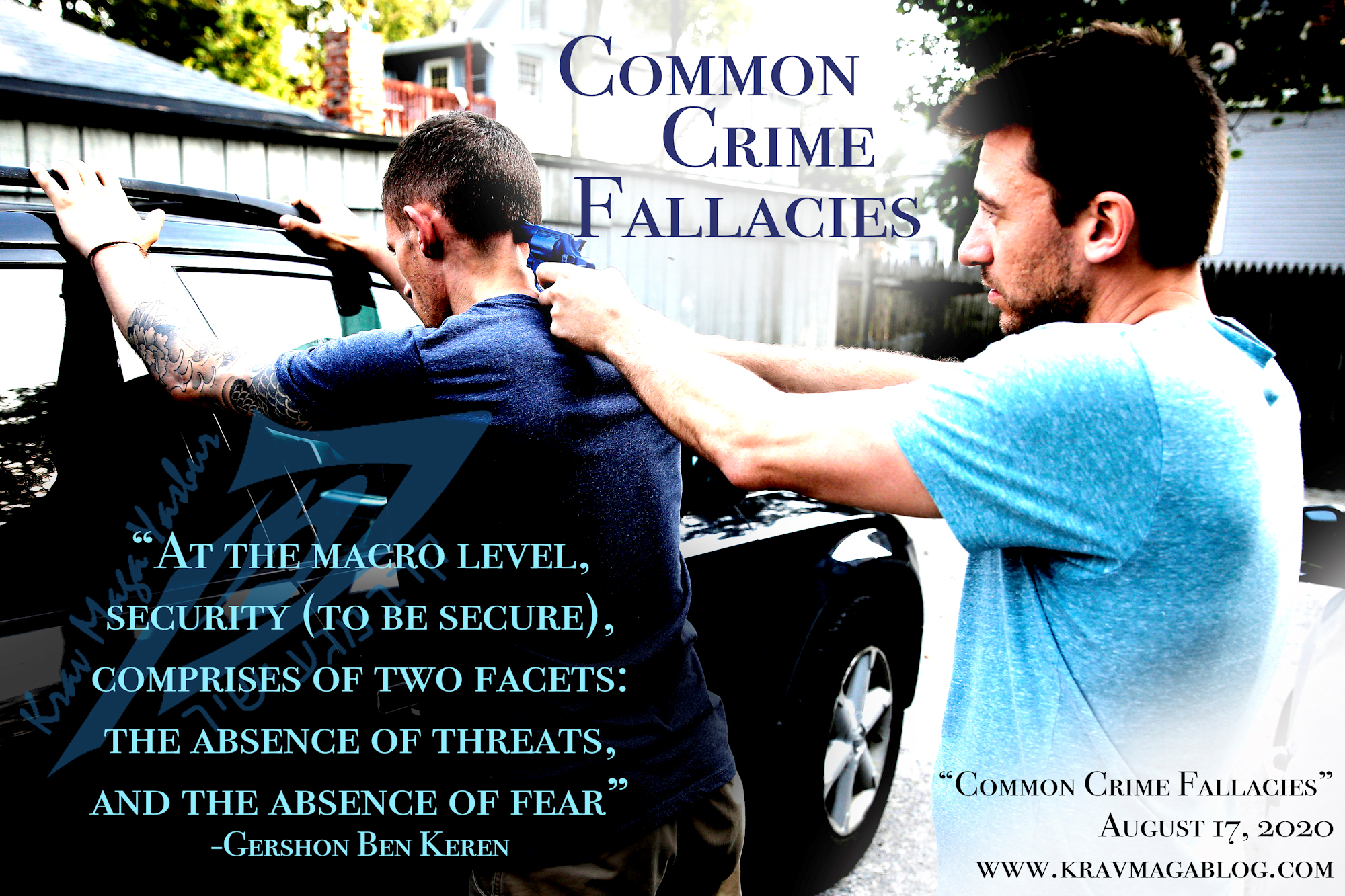At the macro level, security (to be secure), comprises of two facets: the absence of threats, and the absence of fear i.e. to be truly secure, there must objectively be no apparent dangers that we will have to face in our daily lives, and subjectively, we must be able to go about our business, and live our lives without feeling/believing that we are in danger – the UN in 1994 developed a fairly comprehensive definition of “Security” that included the rights and freedom for individuals to develop their full potential etc. From a risk management/mitigation perspective at the personal – not macro – level it is acknowledged that we have few opportunities to reduce or eliminate threats e.g. as an individual you lack the capability to effect the number of muggers and burglars in your locale etc. You do however have the opportunity to reduce your vulnerabilities, that such “threats” could deliberately or inadvertently take advantage of, such as being distracted whilst on your phone, or closing an open window, etc. However, part of the security equation, is the absence of fear, and that is what I want to address in this article, by looking at certain fallacies that many people have concerning crime and violence.
It is very easy to get distracted by dramatic crimes, especially where violence is concerned. The media often engages in what is known as the “horror-distortion sequence”. This is where a graphic and horrific story is picked up on, and then run with the goal of “entertaining” the public/their audience. This “myth” is then built on, until a new baseline has been created, and we accept that the extreme is the new normal. It is not just the media that is responsible for starting theses moral panics, academic and professional communities are also responsible for having engaged in them. In the 1980’s the phenomena of False Memory Syndrome (FMS), resulted in many adults becoming convinced that they had been sexually abused as children; and in several cases bringing criminal and civil charges against their parents. This led many people to believe that child sexual abuse (CSA) was far more common and prevalent than it was, and to also question whether they had been abused as children and had simply repressed those traumatic memories. FMS occurs when an individual objectively believes/becomes convinced that they have experienced something in the past, usually due to some form of “suggestion” in a therapy session (or through the “guidance” of psychologically unsound self-help books), but the incident/event never occurred. Memories are extremely malleable, however sure we are of them – in fact, conviction, cannot be used as a mark of accuracy, as has been shown from many inaccurate accounts by convinced witnesses, who were absolutely certain of what they saw and heard. A showdown in a 1990 court case between expert witnesses, Dr Elonore Terr, and Dr Elizabeth Loftus, that resulted in the conviction of George Franklin for first-degree murder, based solely on a suppressed/repressed memory of his daughter, brought this discussion/debate to the foreground. Fortunately, it’s now better understood, and accepted, that we can create memories that we believe in, and that memory alone is rarely reliable in establishing accuracy. However, an acceptance of pseud-science, and the media’s “horror-distortion sequence”, led many to believe they had been victimized, and that child sexual abuse was more common/rampant than it is/was.
Although we can have unrealistic expectations, concerning the types of victimization that may happen to us – most criminal acts are mundane and ordinary, such as property thefts etc. – we may also have unrealistic expectations about our objective security, and the role and effectiveness of law and order in preventing and reducing crime - another common fallacy that many people hold to. It is worth noting that in almost all cases a crime is committed first and then, sometimes, the criminal justice system becomes aware of it, and in some cases is able to act. Many people believe that an overall increase in patrolling by police is effective in reducing offending, however consistent among most major studies, is that when the police do significantly increase their presence in a jurisdiction, neither offenders nor civilians notice that this has happened. This is because when you consider the scale of policing even a small city, it is impossible, even by doubling the number of officers, to “double” the police presence, because of the size of the area that needs to be covered – you may theoretically get a reduced response time, as statistically there is more likelihood of an officer being close to you, but in actually making the public and criminals aware of an upped police presence, this can only be achieved by concentrating manpower at certain known hotspots, and specific locations/routes etc. Rarely, are crimes prevented by the presence of an officer, as criminals know that a law enforcement officer, will at some point have to move on as part of the job. I understand that many cities are understaffed and resourced, however increasing the number of officers on patrol has been shown to have a little effect on deterrence, other than when patrols have been focused in distinct areas.
The crimes we are likely to face and have to deal with are more likely to be the mundane than the dramatic e.g. a bag snatch, our phone pickpocketed or grabbed, etc., and most muggings and street robberies are unlikely to involve a displayed weapon. Even most home invasions are not that, but mistaken individuals breaking into what they think is their own property, etc. Whilst we shouldn’t discount these threats and dangers, the same precautions that will protect our home from burglary are likely to do the same for other types of crime as well. We should have realistic expectations of the situations we are most likely to be involved in, and plan/prepare accordingly. We should also recognize that in most cases the police are responding after an event rather than during, and that it is up to us to initially deal with most criminal encounters and situations.
Share:

Gershon Ben Keren
2.8K FollowersGershon Ben Keren, is a criminologist, security consultant and Krav Maga Instructor (5th Degree Black Belt) who completed his instructor training in Israel. He has written three books on Krav Maga and was a 2010 inductee into the Museum of Israeli Martial Arts.
Click here to learn more.

